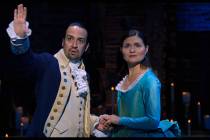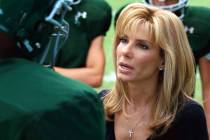‘Professor Marston’ recounts Wonder Woman’s racy backstory
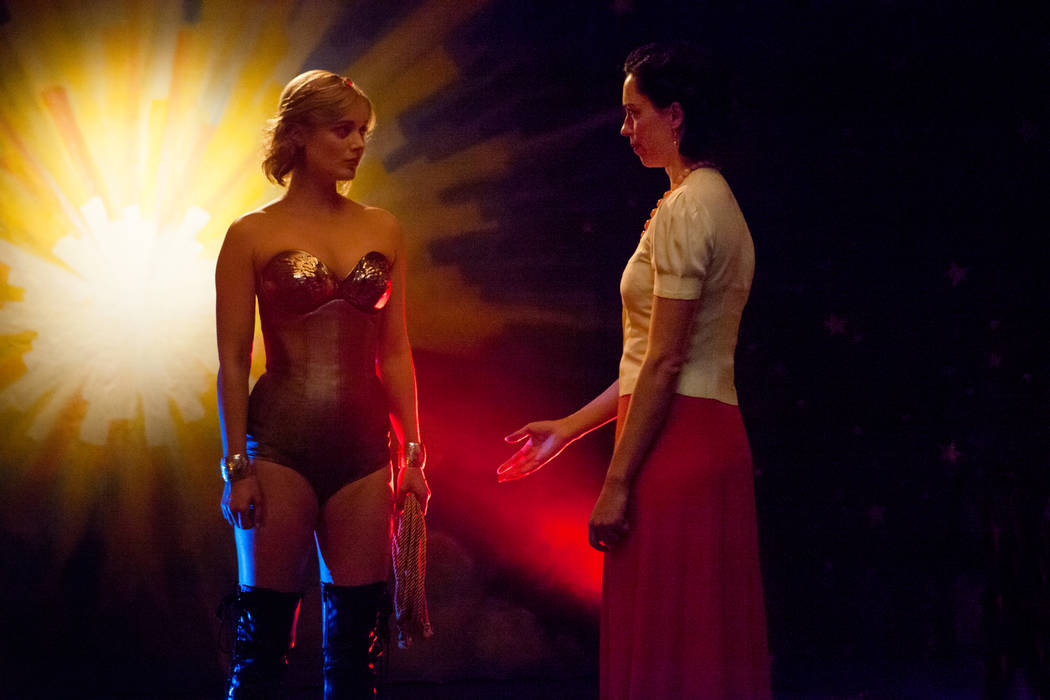
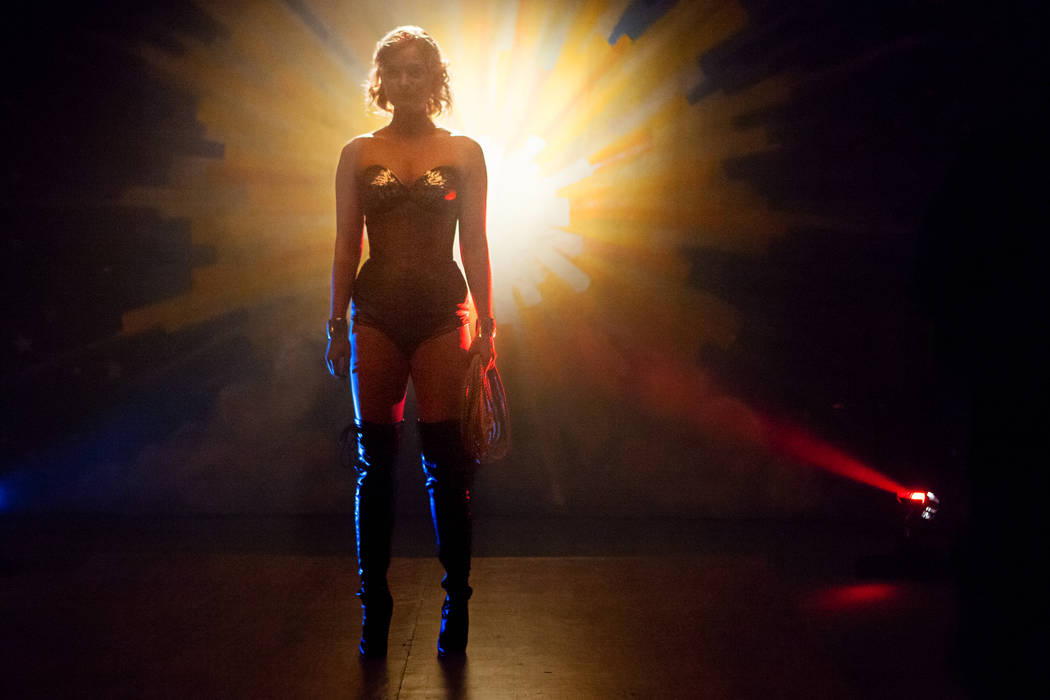
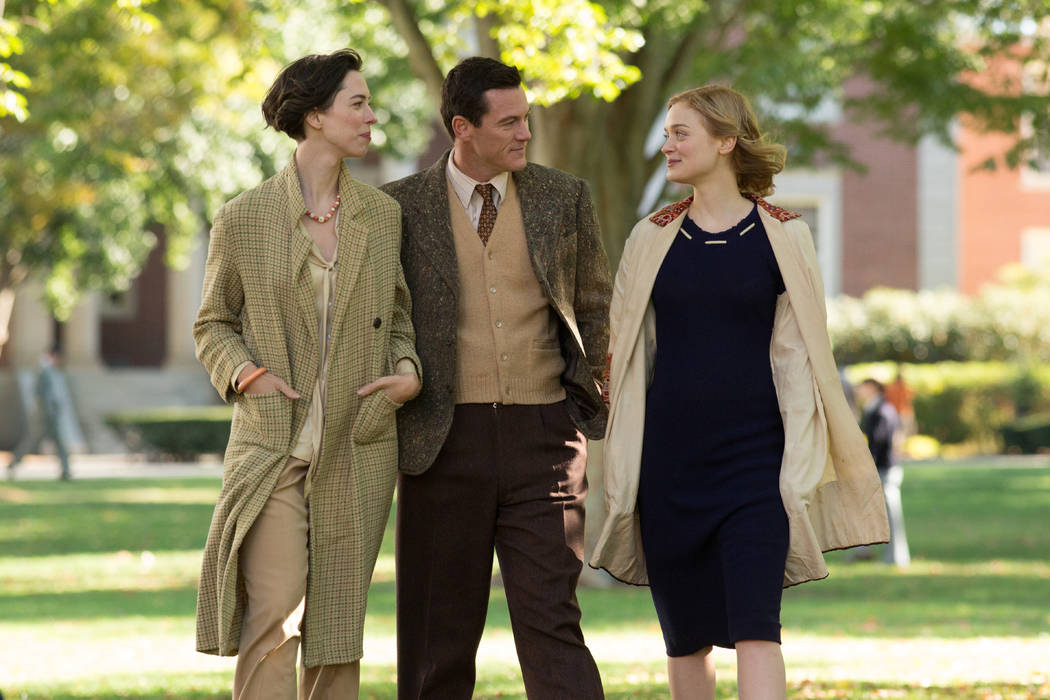
“Wonder Woman” has been one of the biggest and best surprises of the moviegoing year.
It’s made Gal Gadot a star and even managed to get fans excited about next month’s “Justice League” despite having suffered through “Man of Steel” and “Batman v Superman: Dawn of Justice.”
But if you want to be downright floored by Wonder Woman, check out “Professor Marston and The Wonder Women,” a decidedly different origin tale hitting theaters this weekend that traces the character’s roots to a psychology professor, his wife, their lover and some experiments with bondage in the back room of a fetish shop.
Let that sink in for a moment.
Written and directed by Angela Robinson (“D.E.B.S.”), “Professor Marston” is structured around an interrogation of Dr. William Moulton Marston (Luke Evans), a genius whose sexuality was not only frowned upon but illegal, by Josette Frank (Connie Britton) of the influential Child Study Association.
Frank was not at all pleased with the content of the “Wonder Woman” comic book, which Marston created under the name Charles Moulton, nor his polyamorous relationship with his wife, Elizabeth (Rebecca Hall), and their former teaching assistant Olive Byrne (Bella Heathcote, “Fifty Shades Darker”).
Given the trio’s research into both sexuality and science — they developed an early prototype of the polygraph — “Professor Marston” plays out somewhat like “The Imitation Game” meets Showtime’s “Masters of Sex” with a bit of HBO’s “Big Love” thrown in for good measure.
Marston and his wife first encounter Olive in 1928 at Radcliffe College, the women’s school affiliated with the all-male Harvard University, where he teaches the still-young science of psychology. “A person is most happy,” Marston tells his impressionable students, “when they are submissive to a loving authority.”
OK, then.
Eventually, the trio make love backstage in the school’s auditorium. For some reason, he’s dressed as a U.S. soldier, and Olive is wearing a Greek goddess costume along with her everyday cuff bracelets. Even if it was subconscious, the seeds for Wonder Woman couldn’t help but have been planted by something like that.
The idea is cemented, though, when Marston, Elizabeth and Olive attend a bondage demonstration that ends with Olive wearing fetish gear that might as well have been the prototype for the Wonder Woman costume.
Fittingly, the credits for “Professor Marston” list two “rope supervisors.”
Britton’s Josette Frank is as mystified as most modern readers would be by the overt sexuality of the early “Wonder Woman” comics. “In every issue of ‘Wonder Woman,’ women are being whipped, spanked, bound, chained, gagged,” she notes.
There was a greater emphasis on the character’s tying people into submission to get the truth out of them, and her original catchphrase — “Suffering Sappho! — was a reference to the Greek poet whose name has become synonymous with lesbian love.
Panels highlighting some of the ridiculous amounts of kink flash by, almost as proof of how outrageous the comics really were during Marston’s reign.
“I’m going to inject my ideas right into the thumping heart of America,” Marston proclaims at one point. Bizarrely, one of the ideas he admits to his interrogator is that he’s determined to teach young boys that “submission is pleasurable.”
“Professor Marston and The Wonder Women” doesn’t really pick up steam until “Wonder Woman” truly enters the picture in the final half-hour. But it makes for an eye-opening look at love in a bygone era.
And it makes me fear ever learning what motivated Stan Lee to create Spider-Man.
Box-office benchmarks
According to Box Office Mojo, with $412.4 million and counting, “Wonder Woman” is the second-highest-grossing movie of 2017 in the U.S. (behind “Beauty and the Beast’s” $504 million).
Domestically, it’s taken in more money than any other superhero origin tale (ahead of “Spider-Man’s” $403.7 million) and is the third-largest movie based on a D.C. character (behind “The Dark Knight’s” $533.3 million and “The Dark Knight Rises’ ” $448.1 million).
The Patty Jenkins-helmed film recently became the top-grossing movie by a female director in U.S. history, having surpassed the $407.1 million hauled in by “Frozen” and its co-director Jennifer Lee.
Contact Christopher Lawrence at clawrence@reviewjournal.com or 702-380-4567. Follow @life_onthecouch on Twitter.




